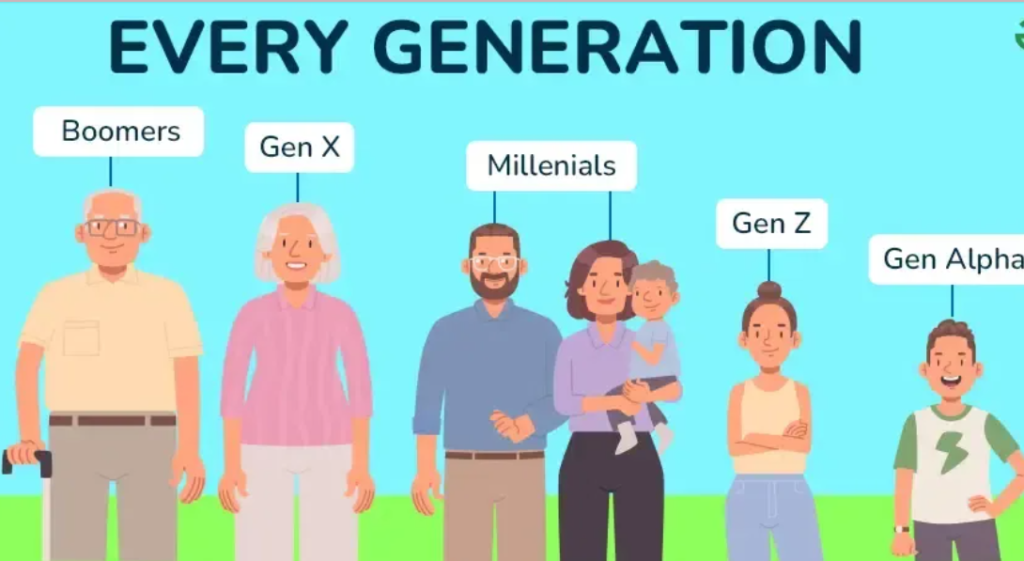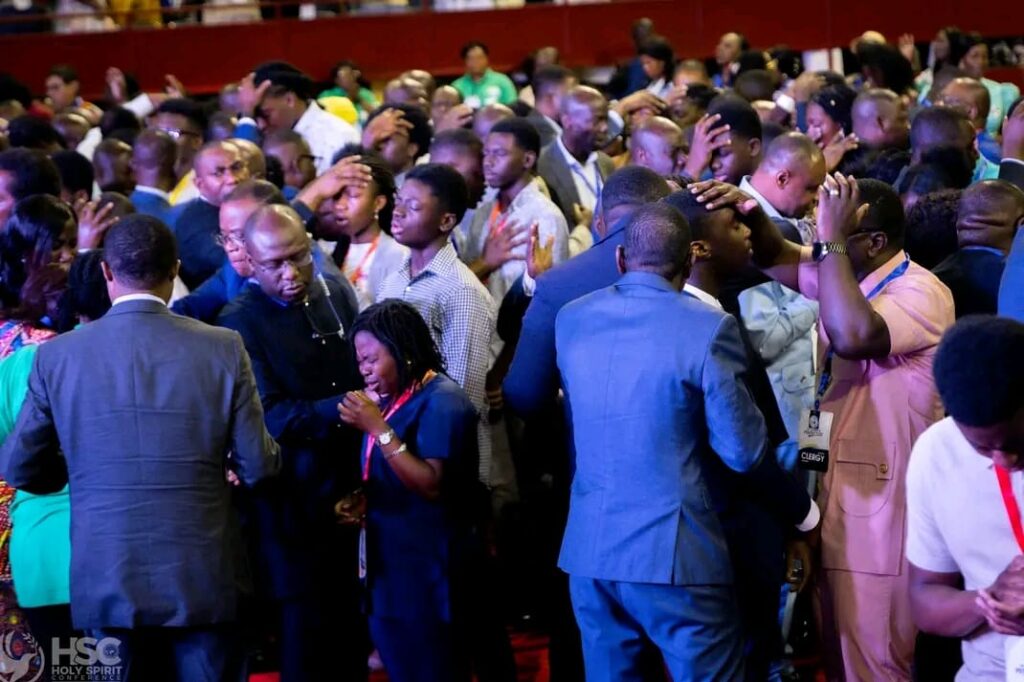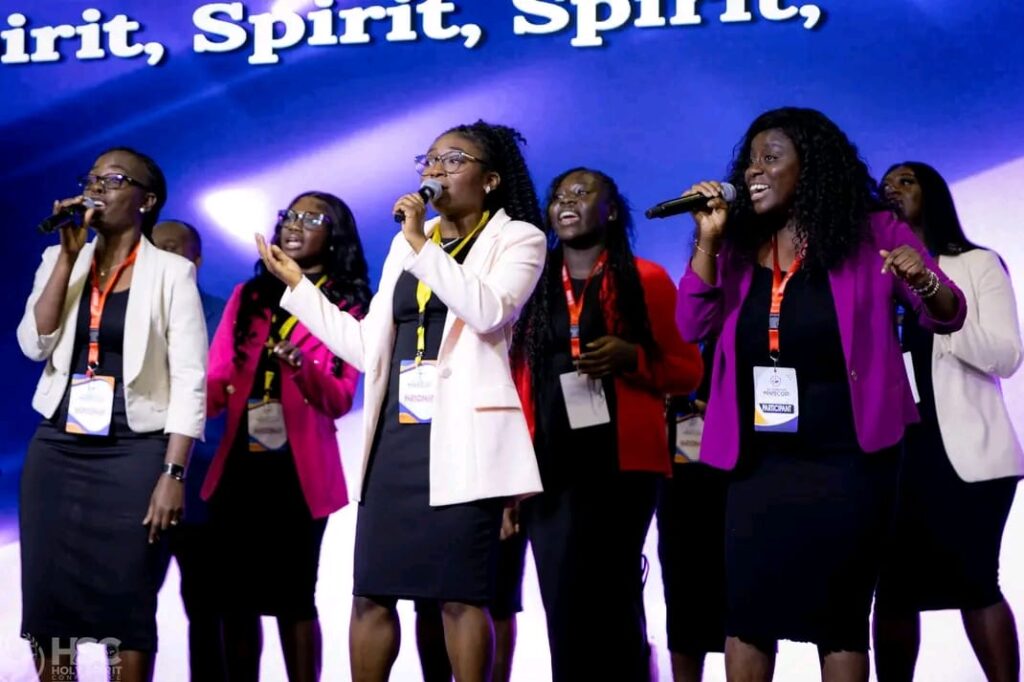BUILDING TOMORROW’S CHURCH TODAY Building the Next Generation (Part 2)

In the ever-evolving landscape of Christianity, the call to build tomorrow’s church today resonates with a sense of urgency and purpose. As Pastor Rob Cosby of Tucson Reformed Baptist Church aptly puts it, “It is a good reminder that young people do care about sound doctrine and can be reached without watering down the message.” This sentiment underscores the importance of nurturing the next generation of believers while remaining steadfast in our commitment to biblical truth. It indeed serves as a clarion call for the church to invest in the next generation while remaining faithful to its core beliefs and values. At the heart of this vision is the recognition that today’s young people are the future stewards of faith, tasked with carrying on the legacy of their predecessors.
Why Build Tomorrow’s Church Today?”
Building tomorrow’s church today is not just a matter of foresight; it’s a necessity born out of the challenges faced by many churches that were once vibrant and influential in the 20th century but are now experiencing decline. These churches, which were once beacons of their communities, now find themselves grappling with a myriad of issues that threaten their survival and relevance in today’s rapidly changing world. From shifting cultural norms to declining attendance and changing demographics, the landscape of religious institutions in the United States and Europe is undergoing a profound transformation.
The Menace;
In the United States, many churches that were highly active and influential in the 20th century are now facing significant declines in membership and attendance. According to recent statistics, a growing number of Americans identify as religiously unaffiliated, with the Pew Research Center reporting that the percentage of adults who describe themselves as Christians has declined sharply in recent years. Additionally, many churches are struggling to attract and retain younger members, leading to an aging congregation that further exacerbates their decline. These churches are also facing financial challenges, as declining attendance often results in reduced giving and financial instability.
Similarly, churches in Europe are also experiencing a decline in membership and influence. In countries that were once considered bastions of Christianity, such as the United Kingdom and Germany, church attendance has been steadily declining for decades. According to a study by the Church of England, only 2% of young adults in the UK identify as Anglican, compared to 40% of those aged over 75. The rise of secularism, changing social attitudes towards religion, and a lack of engagement with younger generations are all contributing factors to the decline of churches in Europe.
In light of these challenges, it is imperative for churches to adapt and innovate in order to remain relevant and sustainable in the 21st century. Building tomorrow’s church today requires a willingness to embrace change, engage with new technologies and communication methods, and reach out to diverse and underserved communities. By addressing the underlying causes of decline and actively working to revitalize their ministries, churches can ensure that they continue to fulfill their mission and serve their congregations for generations to come.
The rise of Millennials, Gen Z, and Gen Alpha has brought about serious challenges regarding religious engagement that need to be addressed. It’s imperative for ministries to effectively reach and touch the hearts of these generations. Rather than expecting the church to compromise its values, it’s essential to study and understand the unique characteristics and needs of each generation. By doing so, ministries can tailor their approach to effectively engage and nurture spiritual growth among Millennials, Gen Z, and Gen Alpha. Utilizing statistics and research data on religious affiliation, attendance patterns, and societal trends among these generations can provide valuable insights for developing relevant strategies and programs within the church.
We would briefly breakdown this different generational cohorts, each with its own distinct characteristics and experiences to help understand the context of this article.
- Millennials:
- Born roughly between 1981 and 1996.
- Grew up during the rise of the internet and digital technology.
- Experienced economic uncertainty, including the Great Recession.
- Often characterized as tech-savvy, adaptable, and open-minded.
- Tend to value experiences over material possessions.
- More likely to prioritize work-life balance and flexibility in the workplace.
- Embrace diversity and inclusivity.
- Gen Z:
- Born roughly between 1997 and 2012.
- Often referred to as digital natives, having grown up with smartphones, social media, and constant connectivity.
- Have witnessed rapid social and technological change from a young age.
- Pragmatic and entrepreneurial, seeking practical solutions to problems.
- Value authenticity and transparency from brands and institutions.
- Embrace diversity and are socially conscious, advocating for causes like climate change and social justice.
- Prefer visual and interactive content over traditional media.
- Gen Alpha:
- Born from around 2013 onwards.
- Still young, with much of their traits and characteristics yet to be fully understood.
- Growing up in a world even more saturated with technology and digital media.
- Expected to be the most diverse generation yet, reflecting changing demographics.
- Likely to have even shorter attention spans and higher expectations for instant gratification.
- Will likely continue to reshape education, entertainment, and consumer trends as they come of age.
While Millennials have been praised for their adaptability to religious(specifically the church) technological and social changes, Gen Z and Gen Alpha face unique challenges due to the rapid pace of technological advancement and societal transformation. They may struggle with information overload, digital addiction, and navigating an increasingly complex and interconnected world. Understanding these generational differences is crucial for effectively engaging and supporting the needs of each group within various contexts, including religious institutions.
Embracing Future Leaders
As we look to the future of the church, it becomes evident that Millennials, Gen Z, and Gen Alpha are the torchbearers of tomorrow’s congregations. However, ensuring the continuity of our faith requires more than just passing the baton; it demands a deliberate effort to understand, engage, and empower these generations within the context of our religious institutions. While these demographic groups may seem distant from traditional church culture, they represent a vital opportunity for growth and revitalization if approached with sensitivity and insight.
Challenges in Bridging the Gap
Surveys and studies have indicated a growing disconnect between younger generations and organized religion, particularly in the Western world. For Gen Z and Gen Alpha, in particular, the sentiment of feeling misunderstood and unconnected to the church is pervasive. According to data from the Pew Research Center and Barna Group, a significant percentage of young people express skepticism towards religious institutions, citing reasons such as perceived hypocrisy, irrelevance, and a lack of inclusivity.
Statistics Highlighting the Disconnect
- Pew Research Center findings reveal that a substantial portion of Gen Z (around 35%) identifies as religiously unaffiliated, with many citing disinterest or skepticism towards organized religion.
- Barna Group surveys indicate that only a minority of Gen Alpha children attend religious services regularly, with a growing number of families prioritizing secular activities over church involvement.
- Additionally, qualitative research shows that younger generations often perceive church teachings as outdated or incompatible with their values and worldview.
Charting a Path Forward
To effectively engage with the needs and aspirations of today’s young adults, it is essential for churches to embark on a multifaceted approach that combines doctrinal integrity with cultural relevance and genuine engagement. Pastors and church leaders play a crucial role in shaping the future of the church by listening to the voices of young people and responding to their needs. Millennials are drawn to churches where they feel loved, supported, and spiritually nourished. However, many also express a desire for greater opportunities for personal growth, meaningful engagement, and authentic community. This includes.
- Understanding and Empathy: Taking the time to listen to the concerns, questions, and aspirations of Millennials, Gen Z, and Gen Alpha. Creating spaces for open dialogue and genuine conversations can foster trust and mutual understanding, bearing in mind that sound doctrine should not be watered down.
- Education and Mentorship: Investing in the spiritual formation and leadership development of young people within the church. Providing opportunities for mentorship, discipleship, and theological education can empower the next generation to take ownership of their faith journey and become active participants in the life of the church.
Embracing Bi-vocational Ministry
One key aspect of tomorrow’s church is the emergence of bivocational ministry as a strategic approach rather than a last resort. Traditionally, bivocational ministry was often viewed as a fallback option for pastors facing financial constraints. However, today’s church planters see it as a missiological strategy—a way to connect with diverse communities, engage in meaningful bi-vocational work, and model a holistic approach to ministry. This shift reflects a broader movement towards reimagining the role of the church in society and finding innovative ways to reach people with the gospel message.
For instance, during the recent national council meeting of the Church of Pentecost USA Inc. in 2024, the decision was made to call upon bivocational ministers to spearhead the city churches, Spanish and French Assemblies, PIWCs, and metrocity churches. This strategic move recognizes the importance of bivocational ministers in understanding ministry and life within these diverse communities. By engaging in bivocational work, these ministers not only provide financial support for their ministries but also gain valuable insights into the needs and challenges of the communities they serve. This enables them to approach ministry in a more holistic and contextually relevant manner, effectively bridging the gap between church and society.
There are five key numbers that highlight the significance of bivocational ministry in pastoral leadership. First, bivocational ministers are often spiritually filled and well-equipped to lead their congregations, ensuring effective growth and discipleship. Second, when bivocational ministers spearhead churches with around 100-300 with 70% been youth and 20% children between the ages of 0-12, it can be easier to facilitate growth and discipleship compared to larger congregations of about 1,000 or more. Third, these ministers are better able to connect with their communities and address their unique needs since they are in the working field of their members, fostering a deeper sense of belonging and engagement. Fourth, bivocational ministry allows for greater flexibility and adaptability in responding to changing ministry contexts and challenges, without compromising on kingdom values and principles. Finally, by leveraging the strengths of bivocational ministers, churches can maximize their impact and effectiveness in fulfilling their mission.
In summary, bivocational ministry offers a strategic and holistic approach to pastoral leadership that is well-suited to the diverse and evolving needs of tomorrow’s church. By recognizing the importance of bivocational ministers and empowering them to lead with spiritual fervor and practical wisdom, churches can effectively reach, disciple, and transform their communities for the glory of God.
Integration of Theological Education and Practical Ministry
Another critical component of building tomorrow’s church is the integration of theological education and practical ministry training for the local church. Seminaries and churches are increasingly recognizing the value of collaborative partnerships, with a focus on residencies that combine academic rigor with hands-on experience. Historically, theological education has been primarily confined to academic institutions, while practical ministry training has taken place within the context of local churches. This trend is exemplified by the emergence of residency programs, where students, such as Presiding Elders and other ministry or lay leaders, engage in hands-on ministry under the guidance of experienced ministers while pursuing theological studies. This holistic approach ensures that future leaders are equipped not only with theological knowledge but also with the practical ministerial skills needed to shepherd and serve God’s people effectively.
Furthermore, it is important to acknowledge that theological ministry alone can breed a certain doctrinal rigidity devoid of ministerial experiences. On the other hand, local churches, while carrying the power and ministry of God, may sometimes only target the local population and those outside the advanced and learned economic status without having impact on the learned and influential ones. However, an effective leader, like Jesus Himself, should be able to reach people from all walks of life, irrespective of their social status or background. Jesus, with His profound biblical knowledge and practical ministry, captured the attention of both the poor and the elite, such as Nicodemus, a learned Pharisee, as well as kings and Pharisees. Similarly, the ministry of Paul encompassed the lives of the poor and those of low profile, while also appealing to kings and priests, such as Agrippa, to listen to his message.
Indeed, the secret of on-ground ministry experience at the local level lies in the daily encounters with the challenges and problems faced by people. Unlike the theoretical environment of the classroom, where theology is taught, local ministry exposes leaders to the raw realities of life scenarios, leaders learn to rely on the power of God to bring about instant results, which may not always be evident in the academic setting.
Moreover, the problems of today and the future require a holistic approach that goes beyond mere experience, especially when dealing with issues of mental and life-threatening health concerns, psychological struggles, complicated career jobs in the market and complex marital and familial dynamics. Leaders must be equipped with learned approaches to address the multifaceted issues affecting individuals and communities. This includes understanding the intricacies of human relationships, navigating societal challenges, and providing practical solutions rooted in biblical principles. Therefore, the integration of theological education with on-the-ground ministry experience is essential for developing leaders who can effectively minister to the holistic needs of people in an ever-changing world.
The integration of theological education and practical ministry training within the local church is essential for nurturing well-rounded leaders who can effectively minister to diverse communities. By combining academic learning with hands-on experience, future leaders can develop a deep understanding of both doctrine and ministry practice, enabling them to effectively serve God’s people and advance His kingdom.
In alignment with the vision of building tomorrow’s church today, The Church of Pentecost USA Inc. has taken proactive steps to equip its leaders and members for effective ministry through initiatives such as the Pentecost Bible Seminary. This seminary, far from being exclusive to full-time or bivocational ministers, extends its reach to include intermittent training sessions tailored for various roles within the church.
Recognizing the diverse leadership needs within the church body, the Pentecost Bible Seminary offers specialized training for Presiding Elders, youth workers, ministry executives, and other key stakeholders. By providing targeted instruction and resources to individuals serving in these capacities, the church ensures that all members are equipped to fulfill their respective mandates and contribute effectively to the mission of the church.
Moreover, by making such training opportunities accessible to the entire church community, including lay members and volunteers, The Church of Pentecost USA Inc. fosters a culture of continuous learning and growth. Through these initiatives, the church not only invests in the development of its leaders but also empowers every member to actively participate in building and advancing the kingdom of God.
As these training efforts are intensified and expanded, they play a vital role in shaping the future of the church by equipping leaders and members with the knowledge, skills, and spiritual insight needed to navigate the challenges and opportunities of the present age.
CONCLUSION
As we navigate the future of the church, it’s crucial to remember the unchanging nature of God, as stated in Numbers 23:19: “God is not a man, that he should lie, nor a son of man, that he should change his mind.” However, while God’s character remains constant, His methods and strategies may evolve to suit the circumstances of each generation.
An illustrative example can be found in the life of Moses, where God instructed him to strike a rock to bring forth water for the Israelites (Exodus 17:6). However, in a later instance, when the people were thirsty again, God commanded Moses to speak to the rock instead (Numbers 20:8). Moses, failing to discern the subtle shift in God’s instruction, struck the rock as before, leading to consequences that prevented him from entering the promised land.
This narrative teaches us that while the foundational truths and doctrines of the faith remain unchanged, the methodologies and approaches to ministry may need to adapt to the changing needs of society. As we look ahead to the future of the church, tomorrow’s leaders will face unique challenges and opportunities. By embracing innovation, collaboration, and with a repositioned mindset, we can build a church that is vibrant, relevant, and resilient—one that reflects the timeless truths of the gospel while adapting to the needs of a rapidly changing world.
Together, let us build tomorrow’s church today, ensuring that the message of hope and redemption continues to transform lives for generations to come.






Comments
God bless you, Man of God .